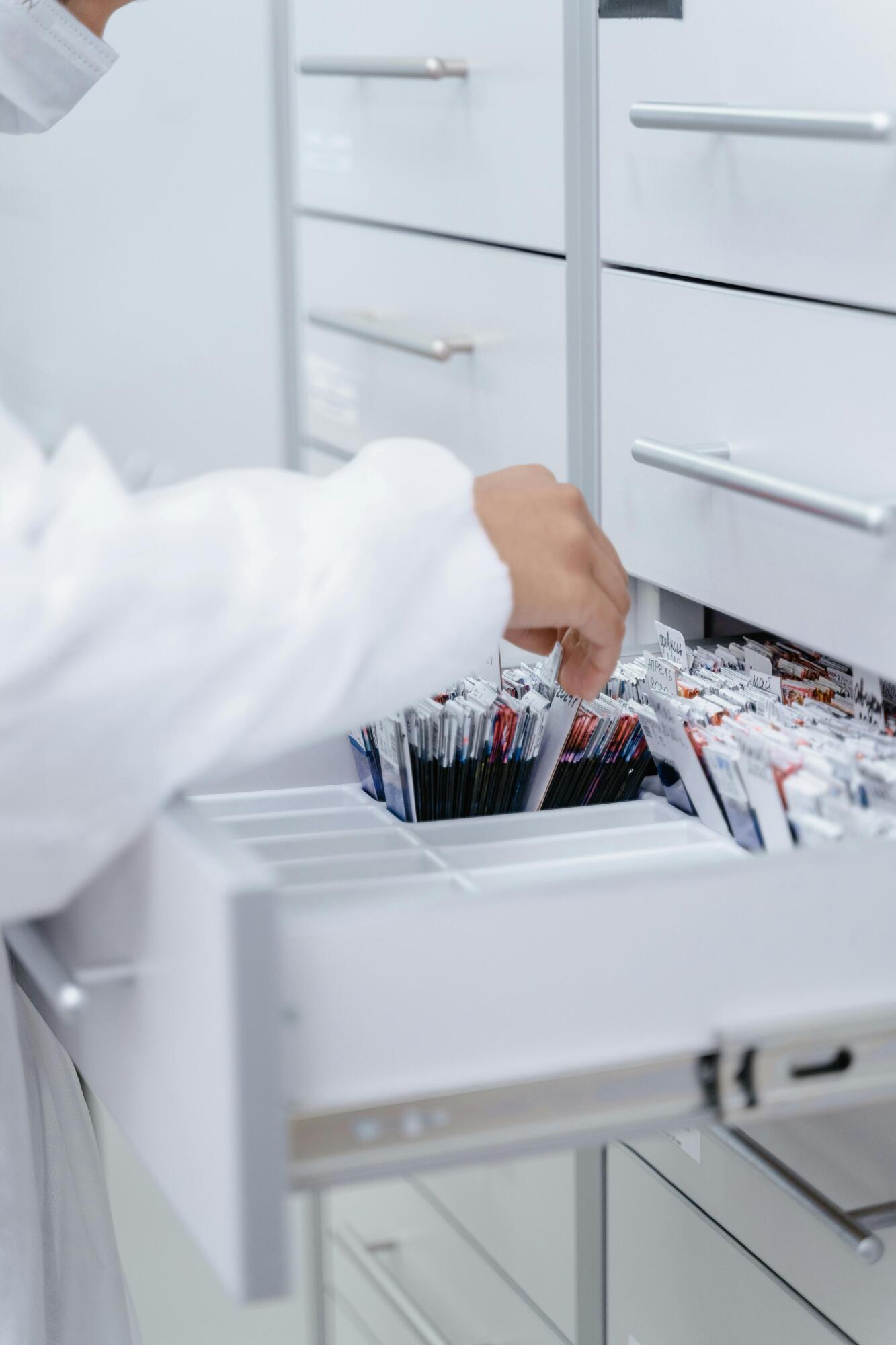Have you ever wondered why proper storage is so important in a laboratory?
The right cabinets keep chemicals, samples, and tools secure while making daily tasks easier.
Good storage also helps prevent accidents and keeps your workspace organized. Whether you are setting up a new lab or improving an existing one, choosing the right cabinet is essential.
Read on to discover the top lab cabinets for safe and efficient storage, and find the one that best fits your needs today.
Chemical Storage Cabinets
Chemical storage cabinets are designed to store hazardous chemicals safely. They are built from materials that resist corrosion and damage from strong substances. Many include ventilation systems to prevent harmful fumes from building up inside, keeping the lab air safe to breathe.
These cabinets often feature strong locking mechanisms to restrict access. Some use color coding to make it easy to identify what’s inside. For example, yellow cabinets often store flammable materials, while blue cabinets hold corrosives.
When selecting a chemical storage cabinet, check that it meets your local safety regulations and has clear labeling. A good practice is to group chemicals by compatibility inside the cabinet to prevent dangerous reactions.
Table of Contents
Flammable Storage Cabinets
Flammable storage cabinets are essential for labs that work with combustible liquids. They are made from fire-resistant materials designed to protect their contents during a fire. This can be the difference between containing an emergency and losing valuable materials.
These cabinets often have self-closing doors that seal automatically in high heat. Air vents allow vapors to escape safely. They reduce the chance of ignition. Adjustable shelves help fit both small and large containers.
Look for cabinets that meet recognized fire safety standards such as OSHA or NFPA. Regular inspections are important. Check door seals, locks, and ventilation to ensure they function properly over time.
Acid and Corrosive Storage Cabinets
Acids and corrosives can quickly damage ordinary cabinets. Acid and corrosive storage cabinets are built to withstand these harsh materials. They often use polyethylene or epoxy-coated steel to prevent corrosion.
Some models come with removable drip trays. This is to collect leaks and make cleanup easier. Others have built-in ventilation to control fumes that can harm both people and equipment.
It’s best to store acids separately from bases and flammable materials. Label all bottles clearly. Ensure containers are sealed tightly before placing them inside the cabinet. This reduces the risk of accidents and contamination.
Metal Storage Cabinets
Metal storage cabinets are valued for their durability and strength. Usually made from steel, they can handle heavy loads. They can also handle frequent use without warping or breaking. These cabinets are:
- versatile
- storing tools
- instruments
- non-hazardous supplies
Adjustable shelves make it easy to organize items by size and frequency of use. Many models include secure locking systems. They protect valuable or sensitive equipment.
Wooden Laboratory Cabinets
Wooden cabinets are less common in modern labs but still have their place. They are often made from hardwood or plywood with a chemical-resistant laminate. They are well-suited for storing:
- glassware
- general tools
- non-reactive materials
Many educational or teaching labs prefer wooden cabinets for their warm appearance and cost-effectiveness. However, they should never be used for flammable or highly corrosive chemicals.
Wood can absorb spills, creating hidden hazards. Placing these cabinets in low-risk storage areas extends their lifespan and keeps the lab safe.
Wall-Mounted Cabinets
Wall-mounted cabinets help save valuable floor space by attaching directly to the wall. They keep supplies off countertops and provide quick access to essential tools. They are excellent for storing smaller items like:
- glassware
- pipettes
- testing kits
Many have glass or clear acrylic doors so you can see inside without opening them, reducing unnecessary exposure to stored items.
Installing wall-mounted cabinets at a comfortable height improves ergonomics. It also helps keep the work area clear. This is important in busy labs where multiple people share the same workspace.
Under-Counter Cabinets
Under-counter cabinets fit neatly under work surfaces, keeping supplies close at hand while freeing up benchtop space. They are ideal for storing frequently used:
- chemicals
- small tools
- cleaning supplies
Many feature locking doors and ventilation systems to handle sensitive materials safely. Placing these cabinets near workstations increases efficiency.
During experiments, staff can access what they need quickly. This is without walking across the lab. This reduces interruptions and helps maintain focus on the task at hand.
Temperature-Controlled Cabinets
Some materials are highly sensitive to temperature changes. Temperature-controlled cabinets ensure these items are stored under precise conditions.
They can be configured to cool, freeze, or maintain a specific temperature for extended periods. Common uses include storing:
- biological samples
- reagents
- volatile chemicals
Reliable temperature control helps preserve the integrity of samples and prevents costly waste. Many modern models come with digital monitoring systems and alarms to alert staff if the temperature moves outside the safe range.
Mobile Storage Cabinets
Mobile storage cabinets have wheels, allowing them to be moved wherever they are needed. They are perfect for labs that require flexible and portable storage options.
These cabinets can hold tools, reagents, or portable testing devices. Lockable wheels prevent them from rolling during use, ensuring stability.
They are also useful for transporting materials between different sections of a large lab. By reducing the need to carry heavy or fragile items by hand, they help prevent spills, drops, and injuries.
Biological Safety Cabinet
A biological safety cabinet protects both lab personnel and the surrounding environment. It uses specialized airflow and HEPA filtration to keep contaminants from escaping.
These cabinets are essential in microbiology, pharmaceutical research, and medical testing. They not only protect workers but also maintain sterile conditions for the samples being handled.
Regular maintenance is key-filters should be inspected and replaced as recommended by the manufacturer. Proper training for staff ensures the cabinet is used safely and effectively.
Learn More About the Top Lab Cabinets
Lab cabinets do more than store supplies. They protect workers, keep materials safe, and make everyday tasks smoother. From chemical storage units to mobile cabinets, each type plays a vital role in laboratory operations.
When choosing a cabinet, consider your lab’s specific needs, the materials you use, and the available space. The right choice will help maintain safety, meet regulations, and improve productivity.
In any laboratory, safe and efficient storage is not optional-it is essential. Quality cabinets are a smart investment for a safer and more organized future.
Looking for more tips and ideas? We’ve got you covered. Check out some of our other posts now.































































